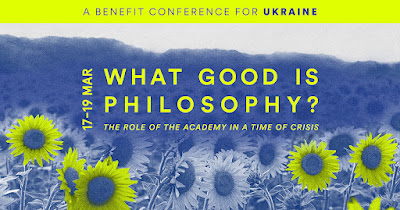In "Constellations" (vol. 30, no.1, March 2023):
Symposium on Jürgen Habermas's "Ein neuer Strukturwandel der Öffentlichkeit und die deliberative Politik" (Berlin: Suhrkamp, 2022):
* Peter J. Verovšek - Authorship and individualization in the digital public sphere
* William E. Scheuerman - A not-very-new structural transformation of the public sphere
* Hubertus Buchstein - Being a master of metaphors
* Claudia Ritzi - The hidden structures of the digital public sphere
* Simone Chambers - Deliberative democracy and the digital public sphere: Asymmetrical fragmentation as a political not a technological problem
* Thorsten Thiel - A polarizing multiverse? Assessing Habermas’ digital update of his public sphere theory [open access]
* Cristina Lafont - A democracy, if we can keep it. Remarks on J. Habermas’ a new structural transformation of the public sphere
* Sebastian Sevignani - “Ideology and simultaneously more than mere ideology”: On Habermas’ reflections and hypotheses on a further structural transformation of the political public sphere
* Joshua Cohen & Archon Fung - Democratic responsibility in the digital public sphere
An English translation of Habermas's book is scheduled to be out in November 2023 on Polity, translated by Ciaran Cronin.





